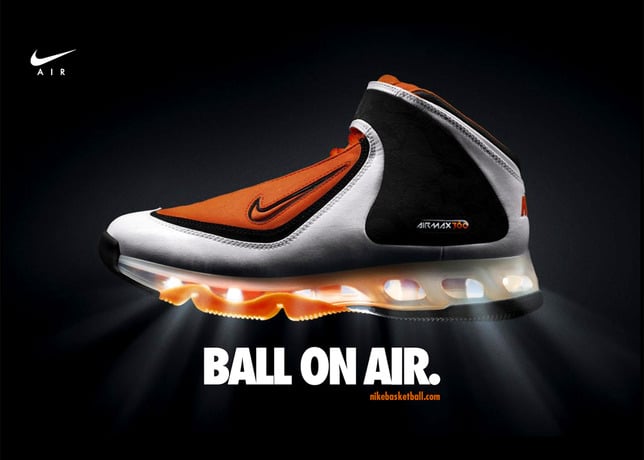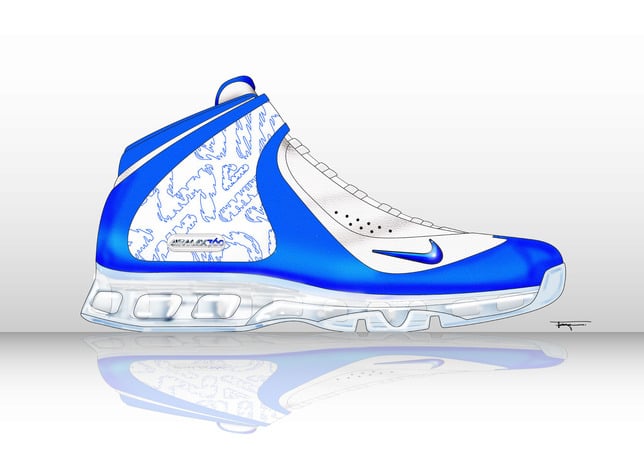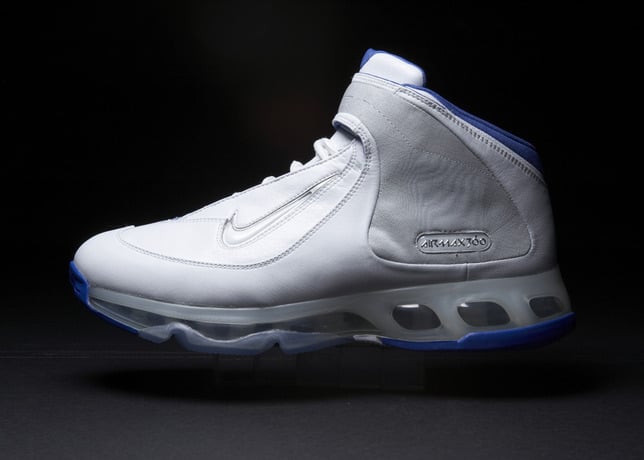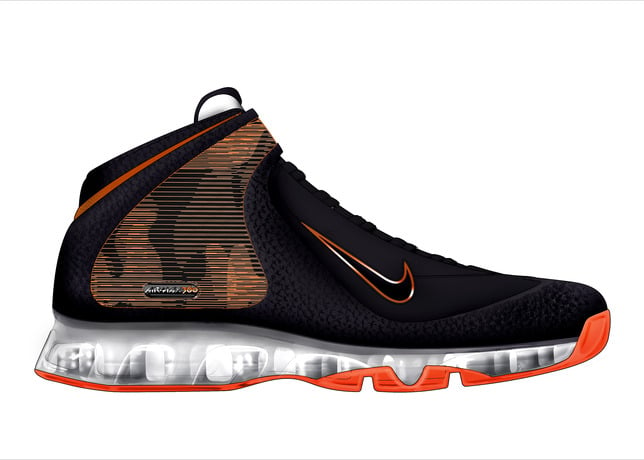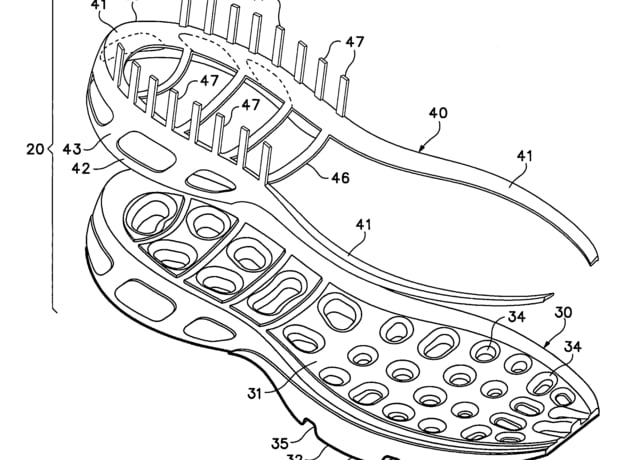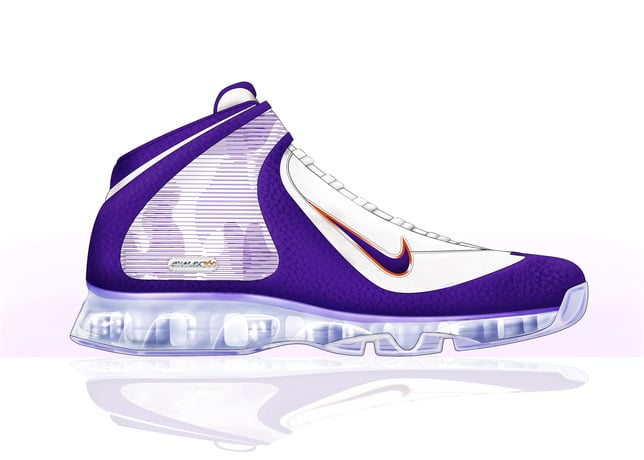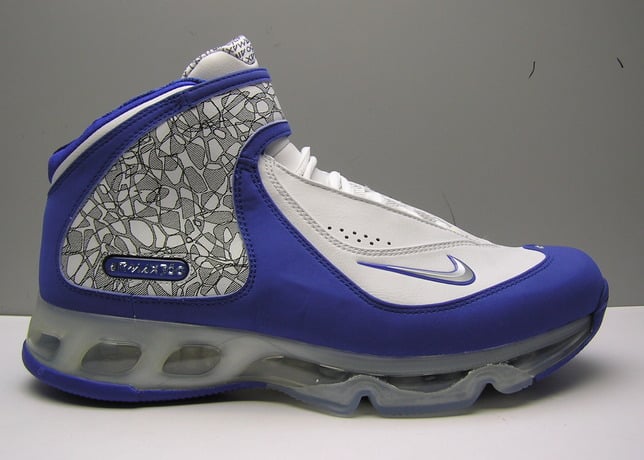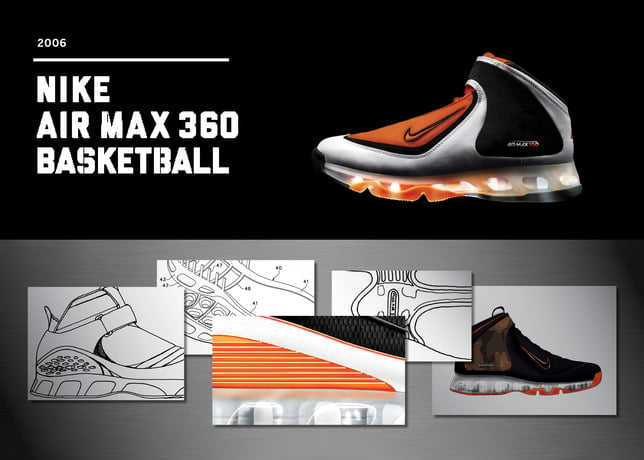
Today’s installment of Nike Basketball’s “Twenty Designs That Changed The Game” series takes a look back at the Nike Air Max 360 Basketball.
“You learn from every project that you do, but I can’t think of many other projects where we learned so much.”- Tracy Teague
While the game of basketball was certainly evolving into a faster, up-and-down game, there was still a player who earned his paycheck with his back to the basket and under the boards. Max Air was always the platform for those athletes who appreciated some assistance on their return to terra firma. In basketball, footwear has to accommodate a 200-plus pound athlete with upwards of 2,000 pounds of force on his feet upon landing. That’s some serious force.
Dating back to the first glimpse of Visible Air in 1988’s Nike Air Revolution, ballers would peer through the bigger and bigger windows all the way through the Uptempo line’s evolution. And over the years, hundreds of different Air Sole units were created for maximum impact protection for the big guys.
Nike Air is the most researched and studied innovation in Nike’s history. It was, and still is, the benchmark. But the one limitation for designers is that Nike Air always needs to be encapsulated in foam because the upper needs to be attached to the air bag somehow.
With the advent of the Nike Air Max 360 Air Sole, it was finally possible to create a shoe without foam, thus letting a player ball entirely on air. Utilizing thermoforming technology (versus blow-molding), Nike engineers created a smoother surface at the top of the Air Sole unit to attach it more securely to the upper. While foam has the benefit of an added cushioning tool, foam also compresses over time. So its removal meant longer-lasting consistent cushioning.
“In some ways, the Nike Air Max 360 was really our first Air Max shoe,” said Tom Hartge, Creative Director for Advanced Initiatives.
While it was 25 years in the making, the original Nike Air Max 360 Air Sole was created for the running category. Behind the scenes, a brief to apply a variation of the Nike Air Max 360’s running bag to a basketball shoe created multiple challenges. Engineers scrutinized the cage to evolve it from linear movement to the lateral movement demands of basketball. Pillar placement necessitated extra alterations as well in order to ensure support where it mattered.
Where the 360 project really excelled was in instigating even more specific basketball-centric innovation along similar lines. The Nike LeBron 7’s carefully-honed Max application, free of obstructions, was created on the 360 assignment’s learnings to reinforce Nike Basketball’s dominance.
In celebration of the summer of basketball, we’re revisiting our most iconic Nike Basketball shoes of the past 20 years. Learn more.
